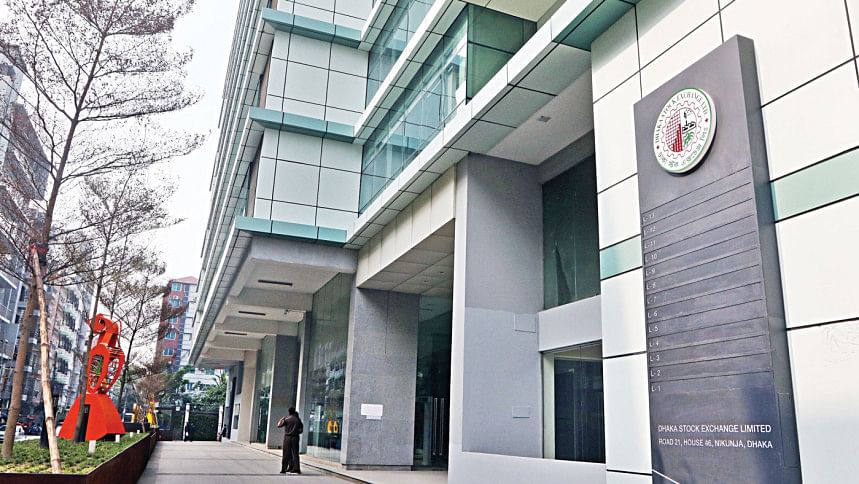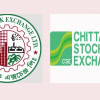Investors on edge as stocks end two years of inflated prices

The ongoing decline of share values in the stock market of Bangladesh was expected as the removal of floor prices has allowed them to adjust to their real levels, according to market analysts.
The DSEX, the benchmark index of the Dhaka Stock Exchange (DSE), shed a whopping 180 points over the past week to stand at 6,156 points as of Thursday, down 2.84 percent from the week prior.
Although almost all of the country's economic indicators were in a downtrend for about the past two years, the key index for measuring share price performance had stayed above 6,200 points.
This was because the floor price mechanism kept share values artificially inflated by preventing them from falling beyond a certain point.
Export earnings had fallen below the target in fiscal 2022-23 while the consumer price index rose to a 12-year high of 9.02 percent at the same time.
Meanwhile, Bangladesh's foreign exchange reserves have almost halved in the past two years.
Electricity tariffs also saw compound growth of around 15.7 percent in the previous fiscal while the price of diesel, which makes up 70 percent of all petroleum products consumed in the country, grew 37 percent year-on-year.
But although most listed companies registered poorer performances due to price hikes for fuel, power and other inputs amid the deteriorating economic situation, it was not reflected in their share value.
Still, most investors knew that the existing share prices were artificially high and therefore showed almost no interest in buying them, leaving the market practically devoid of customers.
This impacted almost all stakeholders, with stock market intermediaries incurring operating losses while the funds of both individual and institutional investors became stuck.
For example, a large number of foreign investors tried to sell their shares and move the funds back to their own country when the local markets started becoming lucrative again.
Besides, their decision to move away from Bangladesh was heavily influenced by the significant devaluation of taka as it meant they would get smaller returns when withdrawing investments.
Over the past two years, the local currency was weakened by about 30 percent to Tk 109 per US dollar, as per Bangladesh Bank data.
However, the foreign investors' sale orders had remained pending in absence of buyers.
This is because buyers had become uninterested in purchasing artificially inflated shares as they knew their values would likely drop if the floor prices were removed.
The Bangladesh Securities and Exchange Commission had reintroduced floor prices in July 2022 to halt the freefall of market indices amid the lingering economic impacts of Covid-19 and Russia-Ukraine war.
But as the market regulator started lifting the floor prices from January 18, the buyers have become active once again, according to a number of stockbrokerages.
A market analyst, preferring anonymity, said the share values will fall at a higher speed at first before reaching their real level now that the artificial price mechanism has been removed.
Another analyst agreed that setting floor prices was a wrong step.
"If the market had dropped due to the war-induced economic downturn in 2022, it may have bounced back strongly later, as was the case in most stock markets globally," he said.
However, the normal up and down process was barred by the floor price mechanism, which may have eroded foreign investors' confidence in the long run.
So, the regulator should come up with an announcement that it will not launch any further artificial mechanisms to boost their confidence, he added.

 For all latest news, follow The Daily Star's Google News channel.
For all latest news, follow The Daily Star's Google News channel. 







Comments